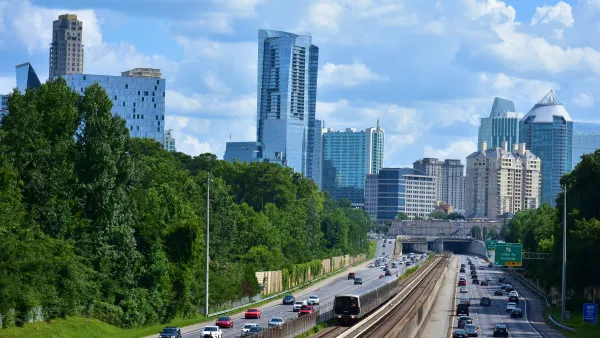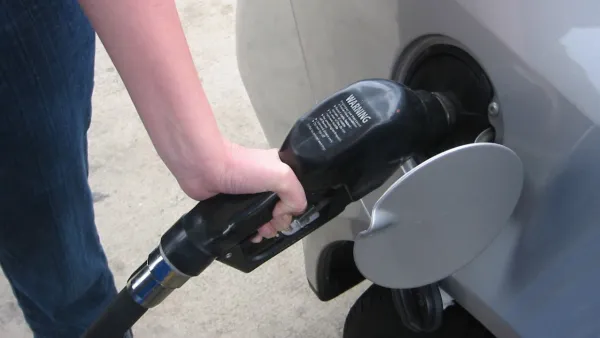Even after New Jersey experienced the most costly storm in it's history, residents strongly oppose any revenue raising strategies designed to fund infrastructure updates and maintenance.
The Mineta Transportation Institute, a San Jose-based research agency, surveyed New Jersey residents to get a better understanding of their attitudes toward five proposed tax increases that would help fund infrastructure improvements in the state.
The proposed increases included: a 5 percent gas tax increase, a 1 percent income tax increase, a 1 percent sales tax increase (referred to as the "tax me" options), 1 percent hotel/recreation tax, or 30-year bonds (the "tax others" options).
Jen Kinney reports, "Researchers hypothesized that the recent memory of a major weather disaster would make residents more likely to support such policies. But while 79 percent of respondents said maintaining roads and transit is 'very important,' and 69.7 percent agreed protecting roads and transit from future disasters was 'very important,' all of the 'tax myself' policies were wildly unpopular. Fifty-four percent of respondents strongly disagreed with raising income taxes, 49 percent squirmed at raising the sales tax, and a whopping 61 percent were against adding a 5-cent-per-gallon gas tax."
The researchers had several key findings in this study. First, the study showed that residents were more likely to support a "tax others" strategy than a "tax me" approach to appropriating funds for infrastructure improvements. However, the general attitude to infrastructure maintenance and how to pay for it was notably not regarded as a real priority. Researchers believe that the impacts of Hurricane Sandy had little influence on the residents in terms of supporting any revenue raising strategies to maintain the current infrastructure.
"The study sums it up bluntly: 'Even after the most costly disaster in New Jersey history, the New Jersey public deeply opposes tax increases — especially gasoline taxes — but still wants better infrastructure. Unfortunately, there is no way to have both.'"
FULL STORY: When It Comes to Paying for Resilience, What Hurricane?

Analysis: Cybertruck Fatality Rate Far Exceeds That of Ford Pinto
The Tesla Cybertruck was recalled seven times last year.

National Parks Layoffs Will Cause Communities to Lose Billions
Thousands of essential park workers were laid off this week, just before the busy spring break season.

Retro-silient?: America’s First “Eco-burb,” The Woodlands Turns 50
A master-planned community north of Houston offers lessons on green infrastructure and resilient design, but falls short of its founder’s lofty affordability and walkability goals.

Test News Post 1
This is a summary

Analysis: Cybertruck Fatality Rate Far Exceeds That of Ford Pinto
The Tesla Cybertruck was recalled seven times last year.

Test News Headline 46
Test for the image on the front page.
Urban Design for Planners 1: Software Tools
This six-course series explores essential urban design concepts using open source software and equips planners with the tools they need to participate fully in the urban design process.
Planning for Universal Design
Learn the tools for implementing Universal Design in planning regulations.
EMC Planning Group, Inc.
Planetizen
Planetizen
Mpact (formerly Rail~Volution)
Great Falls Development Authority, Inc.
HUDs Office of Policy Development and Research
NYU Wagner Graduate School of Public Service




























